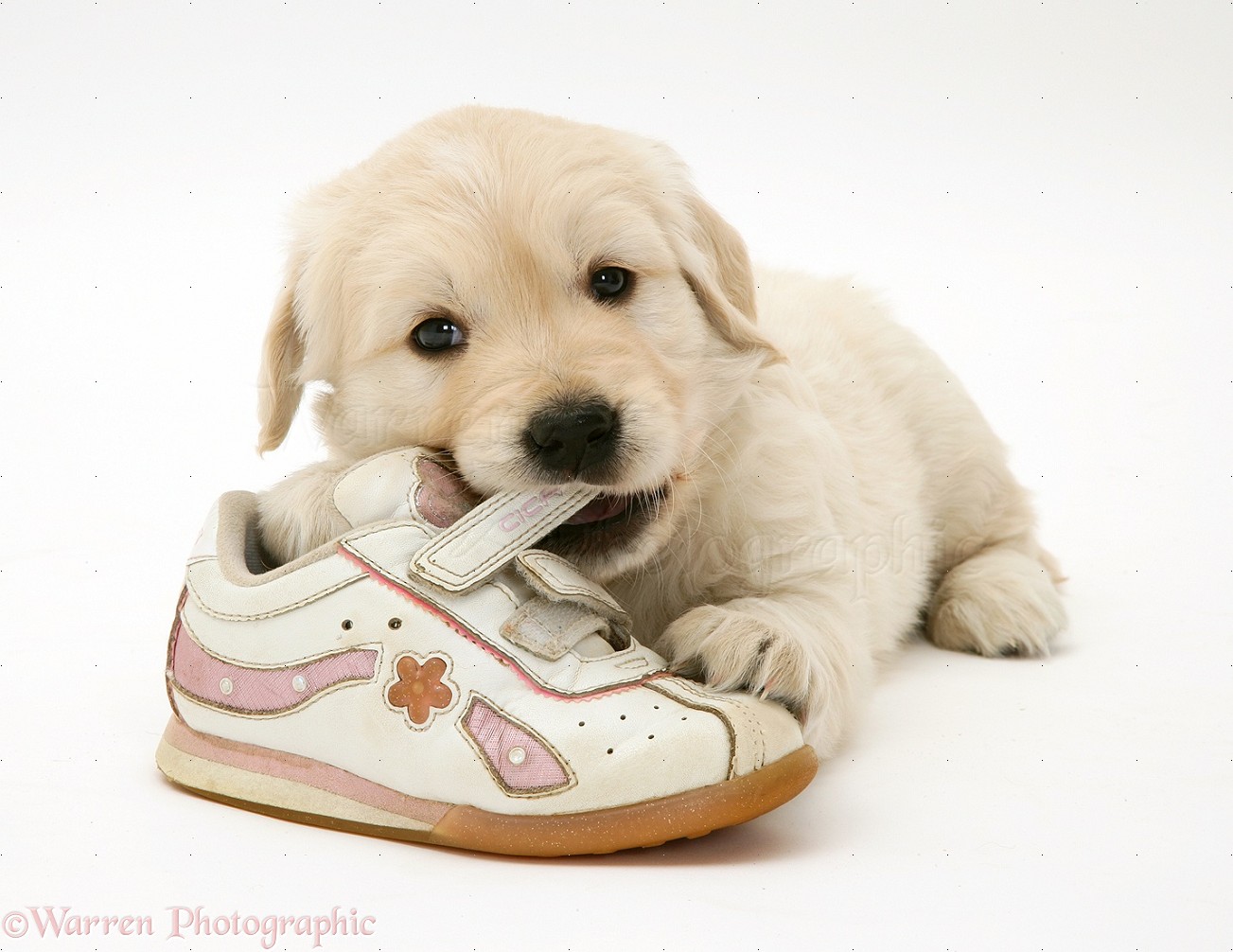 |
| Parvovirus can make puppies very sick! (Image Source) |
Canine Parvovirus is a very serious condition that typically affects puppies or young dogs. Although adults can be affected, it is not very common unless they are under some sort of intense stress. One of the reasons parvovirus is so serious, is that it is found in pretty much any environment and once it is there it is EXTREMELY difficult to get rid of. It can even survive freezing temperatures!!
 |
| There are many ways puppies are exposed to the virus. Typically they get it from ingestion of something in contact with parvo virus. (Image Source) |
Transmission of parvovirus, typically occurs through ingestion. This could be infected soil, toys or anything that has contacted the virus. Unfortunately, the virus is VERY good at sticking to our shoes and clothes as well, so even if your puppy hasn't been somewhere the virus was, you may have been. There is a very short incubation period, with some dogs showing symptoms within 3-7 days of exposure. Practicing good hygiene and keeping your puppy from chewing on inappropriate or unknown objects (That's easier said than done I know!) can help minimize their risk of infection. While socialization of your puppy is very important, especially at young ages, it is also equally important that you ensure the animals with which they are socializing are healthy and up to date on their vaccinations.
 |
| Puppies are growing quickly, they should have a good appetite, if they stop eating, that is one of the first signs they need to go to the veterinarian's office. (Image Source) |
Why is parvovirus so serious? The virus actually likes to attack rapidly dividing cells. In most cases it targets the lining of the gut. It will destroy the intestinal walls which leads to many of the symptoms we commonly see. This includes vomiting and severe diarrhea typically with blood in it. Because the lining of gut is affected, absorption of nutrients is also diminished, so even if your puppy feels like eating, they are not able to obtain what they need from the food. You can see where this becomes a very vicious cycle. They are losing large amount of water and nutrients from the vomiting and diarrhea, and even if they feel like eating (which many don't) they can't replenish their needs. I have seen puppies that were happy and healthy one day and within 24 hours they were in need of EMERGENCY attention. This is not a disease to wait and see if they get better. At the first signs of vomiting or diarrhea in your puppy, you should definitely take them to the veterinary office. Additional signs may also include anemia, lethargy, and weakness.
 |
| Parvo tests are one of the quickest ways to identify if your puppy has the virus. (Image Source) |
There are many causes for vomiting and diarrhea in puppies so it is important to make sure we are treating the correct condition. This is why veterinarians may recommend parvo testing which is done via a fecal swab. They may also want blood work to check for anemia and electrolyte imbalances and some may also need x-rays to rule out foreign bodies. Puppies are into everything and signs of an intestinal obstruction can look very similar to parvovirus. Many veterinarians will chose to start with the parvovirus test, because this can be done out in the parking lot and if positive, the necessary measures can be taken to prevent further spread throughout the clinic environment.
 |
| Hospitalization with intravenous fluids and supportive care is recommended for parvo positive puppies. (Image source) |
Once a diagnosis of parvovirus is made, treatment needs to be instituted quickly. While there is no drug to cure parvovirus, it is STRONGLY recommended to hospitalize the patient and begin supportive care. This will include intravenous fluids, medications to settle the stomach, possibly starting antibiotics (which will not treat the virus, but will help with any secondary infections), and in extreme cases if the anemia is severe, they may need a blood transfusion. This is not a disease that should be taken lightly. It is very serious and many patients can pass away, despite aggressive treatment. The earlier treatment is instituted the better chance we have for a positive outcome.
 |
| Vaccinations are one way to help prevent parvovirus infection in your puppy. (Image Source) |
The good news is, there is a vaccination to help prevent this virus. Although puppies are not considered fully protected until their puppy series if completed, appropriate vaccination timing may lead to less severe clinical signs. If you are picking out a puppy from a breeder, make sure the parents were both up to date on their vaccinations, this will also help minimize the risk of your puppy contracting this potentially deadly virus.
For more information on parvovirus you can read the following article here.
No comments:
Post a Comment